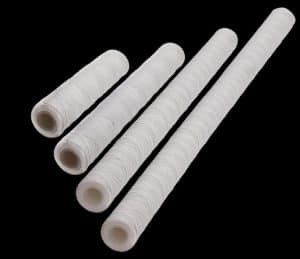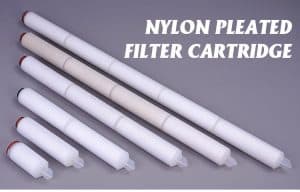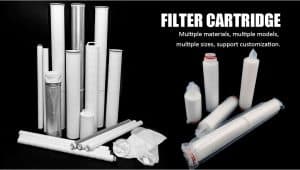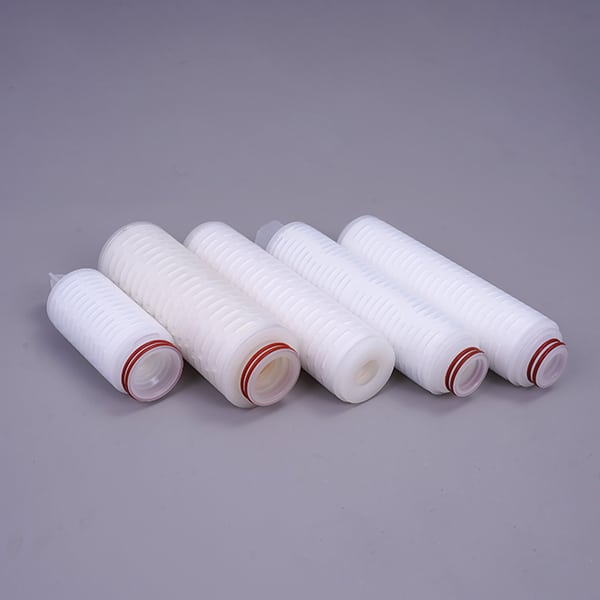
The Ultimate Guide to Polypropylene String Wound Filters: A Reliable Solution for Effective Filtration
When it comes to industrial and residential filtration systems, polypropylene string wound filters stand out as a highly efficient and cost-effective option. These filters are renowned for their ability to capture particles and contaminants from liquids, ensuring optimal water quality for various applications. In this article, we’ll explore the key features, benefits, and uses of polypropylene string wound filters, as well as why they are an ideal choice for your filtration needs.
What is a Polypropylene String Wound Filter?
A polypropylene string wound filter is a type of sediment filter made by tightly winding layers of polypropylene yarn around a central core. This design creates a gradient structure where the outer layers capture larger particles, and the inner layers capture smaller particles. Polypropylene (PP) is a thermoplastic polymer known for its resistance to chemicals, high temperatures, and durability, making it an excellent material for filtration applications.
These filters are commonly used in liquid filtration systems to remove sediments such as sand, rust, dirt, and other fine particles from water or other fluids. They are particularly useful in environments where consistent filtration is required to protect downstream equipment and improve the quality of water or liquid being processed.
Applications of Polypropylene String Wound Filters
Polypropylene string wound filters are versatile and can be used across various industries and applications:
- Residential Water Filtration: These filters are commonly used in home water filtration systems to remove sediment, rust, and other particulates from drinking water, improving both taste and safety. They are often used as pre-filters in whole-house filtration systems or under-sink units.
- Industrial Filtration: Industries that require large-scale liquid filtration, such as food and beverage processing, pharmaceuticals, and chemicals, use polypropylene string wound filters to remove sediments and protect sensitive equipment from contamination.
- Reverse Osmosis Systems: As a pre-filtration step, polypropylene string wound filters can be used to remove larger particles before water passes through finer filters in reverse osmosis systems. This helps prolong the life of more expensive filters and improves the overall efficiency of the filtration system.
- Oil and Gas Industry: In oilfield applications, these filters are used to remove sediments from oil, protecting pumps and other equipment from damage caused by particulate contamination.
- Pool and Spa Filtration: Polypropylene string wound filters are also commonly used in pool and spa systems to filter out debris and sediments, ensuring clean water and reducing the need for chemical treatments.
How to Choose the Right Polypropylene String Wound Filter
When selecting a polypropylene string wound filter, consider the following factors:
- Micron Rating: Choose a filter with the appropriate micron rating based on the size of the particles you need to remove. For example, if you’re filtering drinking water, a filter with a 5-micron rating may be sufficient, whereas industrial applications may require filters with higher or lower micron ratings.
- Core Material: Some filters come with a polypropylene core, while others use stainless steel or tinned steel cores for enhanced durability in high-temperature or high-pressure applications.
- Filter Size: Ensure that the filter fits your filtration system. Polypropylene string wound filters come in various lengths and diameters to accommodate different housing sizes.
- Flow Rate: Check the flow rate requirements of your system and ensure that the filter can handle the volume of liquid without compromising filtration efficiency.
- Operating Temperature and Pressure: Consider the operating conditions of your filtration system. If your system involves high temperatures or pressures, ensure that the filter can withstand those conditions.
Conclusion: Invest in Polypropylene String Wound Filters for Superior Filtration
The polypropylene string wound filter is an excellent choice for anyone seeking a reliable, cost-effective, and versatile filtration solution. Whether you’re looking to improve water quality in your home, protect sensitive industrial equipment, or filter out contaminants in oil and gas operations, these filters offer superior performance and longevity. With their chemical resistance, gradient filtration, and wide range of available micron ratings, polypropylene string wound filters are the go-to option for a wide variety of filtration needs.
By investing in high-quality polypropylene string wound filters, you’ll ensure cleaner liquids, improved system performance, and reduced maintenance costs across the board.




